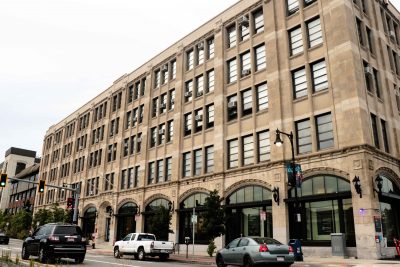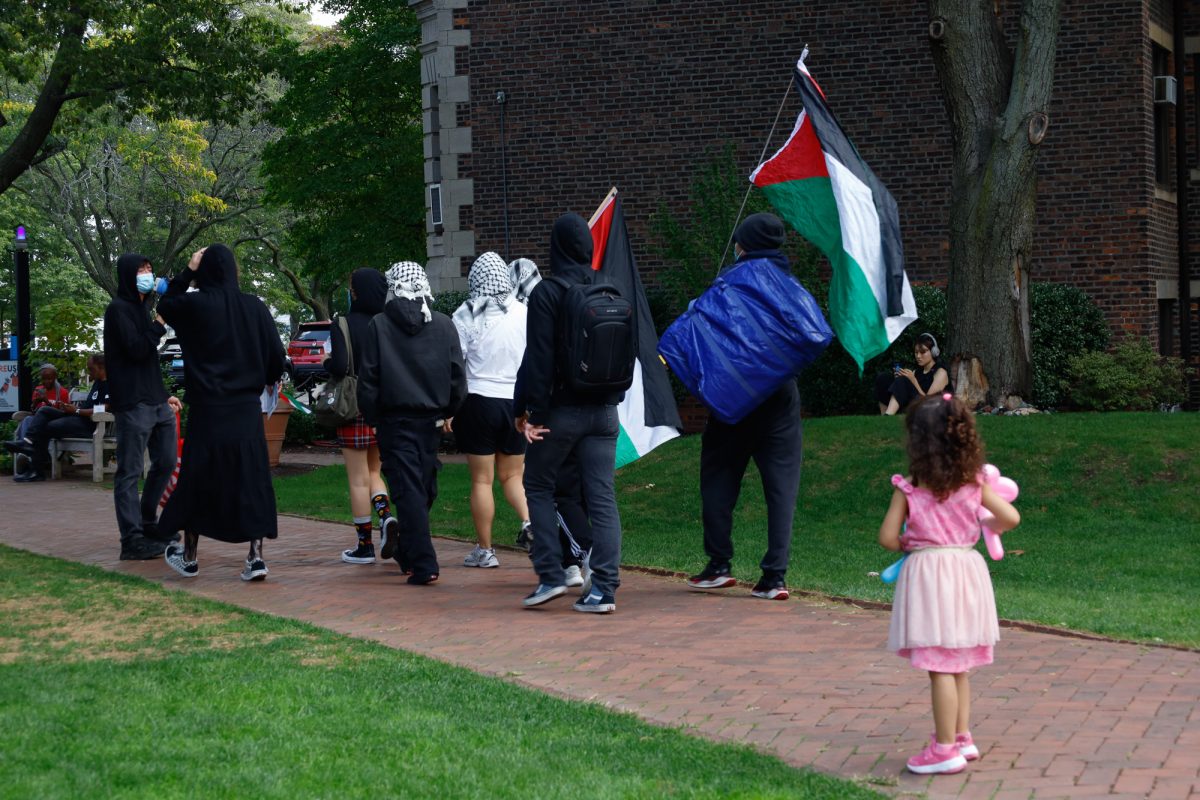In an attempt to make budget cuts during the pandemic, the Boston University School of Music pulled the funding for two of its creative research centers, according to College of Fine Arts Dean Harvey Young.

The Center for New Music and the Center for Early Music Studies will no longer receive University funding outside of grant-matching.
Funding for the Center for Beethoven Research, another research center in the School of Music, has remained unchanged, according to center director Jeremy Yudkin.
School of Music Director Gregory Melchor-Barz informed CNM Director Joshua Fineberg in a June 29 email that due to budget constraints, the School of Music was permanently eliminating the $45,000 per year in funds previously secured for the CNM.
The CNM is a creative research center that brings students into contact with professional musicians and composers and puts on a variety of performances throughout the year.
“Composition students now have no performance opportunities when they come here, and a composer cannot learn to be a composer if they don’t get to hear their music played,” Fineberg said. “Moreover, there’s no longer any support to the chamber music program or to the broader ensembles program for the performance of contemporary music.”
Aside from a 20-minute orchestra reading once per semester available exclusively to those taking orchestration classes, Fineberg said any other performance opportunities previously offered are now “all gone.”
Young wrote in an email to The Daily Free Press that because CFA “[operates] with the belief that a successful center should be able to obtain external grants,” the college decided it will match any funds the CNM or CEMS acquire through grant applications.
But the funding cut, Young wrote, was a necessary financial move.
“The decision was made to preserve the jobs of high-performing and student-supporting staff and faculty,” Young wrote, “which meant reducing or eliminating funding for select initiatives.”
Fineberg said that for the CNM, grants will likely be difficult to obtain.
“If the pitch is: we need money so that we can have a proper educational program for our students who are already paying us tuition,” Fineberg said, “nobody will give us a penny.”
CNM offered a platform for student composers to hear their music played by top-quality performers, Fineberg said, and also gave students the resources to play the contemporary music they wanted to learn — through renting copyrighted music, hiring special techniques coaches and the like.
“I suspect that from the dean’s office, they think of [public performances] as the most important things we did because those are the things that get in the paper,” Fineberg said. “But really, the vast majority of what we did was really curricularly focused and student-focused, and really making the music of the time we live in an integral part of their training as musicians and as composers.”
Fineberg said Young did not discuss the budget cuts with CNM before they happened.
“Because he didn’t talk to any of us, I don’t think he realized he was actually cutting the heart out of the whole School of Music program for training people to write and play contemporary music,” Fineberg said. “And these were things that are not extra activities. They’re really at the center of it.”
Multiple students have also written to the School of Music and CFA, asking that they reconsider the decision. CFA sophomore Joseph Sedarski started a GoFundMe page to help raise money for the CNM. Sedarski said the CNM provided him with “irreplaceable opportunities,” such as studying with composer Jennifer Walshe.
“I felt some sense of personal responsibility,” Sedarski said, “to give the same opportunity or at least fight for those same opportunities that I had enjoyed and taken advantage of so well.”
School of Music senior lecturer Rodney Lister said the CNM gave students an essential platform.
“Students now really don’t have an avenue for getting your music played,” Lister said. “If you’re studying composition, an important part of the process is being able to hear what you’ve written and to work with performers and get some feedback.”
Georg Hilmarsson, a fifth-year School of Music graduate student and assistant director of the CNM, said the CNM and School of Music go hand in hand.
“I probably wouldn’t have chosen BU if it wasn’t for the Center for New Music,” Hilmarsson said. “It has a lot of nice faculty, but composition studies, and especially if you are a little bit further ahead, it’s much more about the involvement and experience you get.”
Two incoming first-year students in the School of Music also reached out to Fineberg through email, writing they are upset about the decision to defund the CNM. One student chose to withdraw his application.
Chaya Czernowin, a Walter Bigelow Rosen professor of music at Harvard University, said that each year her students would have the opportunity to attend a workshop with BU students and learn from world-class composers. Losing funding for the CNM means this may not be able to happen anymore, which she said would be a great loss.
“The center was a kind of place where the new music scene of Boston was connecting,” Czernowin said. “I brought as an example the interaction between Harvard students and BU students, but actually, in the concept, many more people would come from all the large Boston educational institutions.”
CEMS director Victor Coelho said he understands why CFA decided to remove funding for his center.
“While I’m very sad that my center got cut, I do understand the huge financial peril that that was brought on to all of the colleges by the coronavirus, the loss of revenue and the need to somehow make up that revenue,” Coelho said. “And every college was tasked with that goal.”
He said he is looking into ways to help raise money for CEMS to enable events to occur in the future and courses to be added back to the CFA roster. He wrote in a later email that he would not want to take away funds that could go toward someone’s salary or job.






















































































































